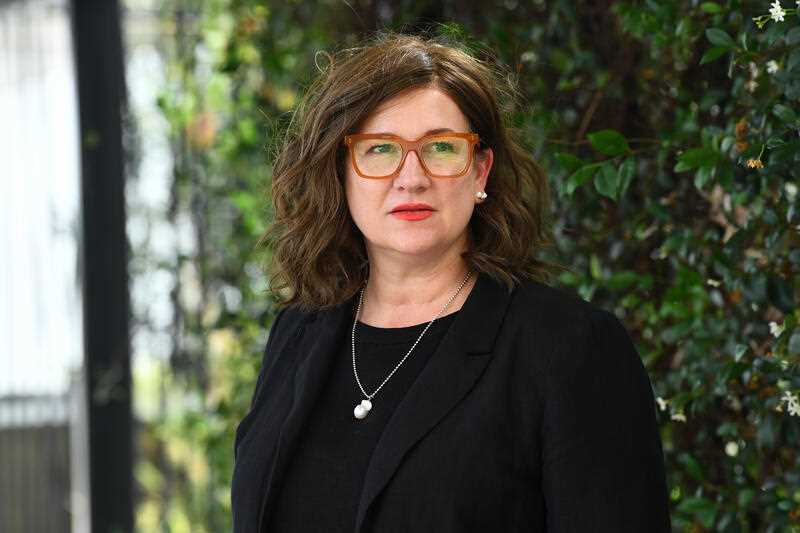Canberra doctors could be forced to increase their bills by $15 a consultation or close their clinics if the ACT Government introduces a payroll tax, the Royal Australian College of General Practitioners warns.
The RACGP states that the ACT Revenue Office has contacted GP clinics about the payroll tax, which the RACGP considers a re-interpretation of tax legislation that will impact on both doctors and patients.
“This Sick Tax threatens the future of care in our capital,” RACGP president Dr Nicole Higgins said.
“It will increase costs for patients… It will put more pressure on hospitals, worsen the health system crisis, and undermine the Federal Government’s Medicare reforms.”
In 2021, the NSW Civil and Administrative Tribunal determined that medical practices must pay payroll tax on tenant GPs (doctors working from medical centres), classifying them as employees (the Thomas and Naaz decision). Queensland and Victoria have agreed with the decision.
Last month, the Supreme Court of NSW rejected an appeal against the tribunal’s decision.
Dr Higgins protested that GPs already pay a payroll tax on staff (receptionists, nurses, trainee doctors), and that most GPs are not employees: they rent rooms from a practice owner, work under independent agreements, and pay a percentage of their earnings to the clinic, rather than being paid a wage.
Both the RACGP and the Australian Medical Association (AMA) are concerned that the payroll tax will make many practices unsustainable. The RACGP’s poll in January showed that only 3 per cent of clinics would be able to absorb costs associated with payroll tax, and 78 per cent would be forced to raise fees.
AMA president Professor Stephen Robson said in January that practices were already closing across Australia because of increasing costs and poorly indexed Medicare rebates. Public and some private hospitals are exempt from payroll tax; Professor Robson understood that the federal government exempted GPs from GST as essential medical services. In his view, the payroll tax was a “sneaky” way for state governments to tax patients for accessing federally-funded Medicare services.
The ACT Government will “carefully consider” the outcomes of the Supreme Court decision.
“The payroll tax laws applying to payments to employees and contractors have not changed,” a spokesperson said. “Whether payments to doctors are subject to payroll tax will depend on the facts and circumstances of each arrangement. Payroll tax applies equally to all industries in the ACT. In the ACT, payroll tax applies to all businesses with wages exceeding the payroll tax threshold, currently at $2 million per year – this is the highest tax-free threshold of any state or territory…
“The ACT Revenue Office routinely talks to businesses and advisers about how the tax laws operate and actual or potential tax liabilities.”
Canberra Liberals MLA Leanne Castley, shadow minister for health, urged Chief Minister Andrew Barr to exempt medical practices from any increase in payroll tax.
“Primary care is a crucial service for sick Canberrans, and it is atrocious that the ACT Revenue office is contacting practices telling them that their costs are increasing,” Ms Castley said.
“The Royal Australian College of General Practitioners has flagged that this is expected to add around $15 per consult when costs are already an average $49.11 for a 15-minute visit with a GP.
“The ACT Government need to be doing everything they can to ensure that GPs … can keep their costs as low as possible to encourage sick Canberrans to access their fantastic local GPs.
“General Practitioners in the ACT have faced workforce shortages and a decline in income relative to other specialists, which has resulted in fewer graduates choosing to specialise as a GP and open a practice.
“The Chief Minister, Health Minister and Federal Labor representatives have all stressed the importance of General Practices reducing our extensive Emergency Department wait times, and I hope that they support GPs so patients can access primary care they need.”
Local doctors are concerned, according to the RACGP.
“We would have no way of absorbing these extra costs,” Dr Felicity Donaghy, practice principal of Garema Place Surgery, Civic, said. “Our only option would be to pass it on to patients. Profit margins in general practice sit at about 5 per cent, and payroll tax is 6.85 per cent in the ACT.
“I am speaking out on behalf of our patients and the many people in Canberra who will struggle to afford increased costs for essential care. We need a solution, because our state already has the lowest bulk billing rates in Australia, and if practices are forced to raise fees, it will be devastating for the community.”
Garema Place Surgery is one of only two practices in the city centre, Dr Higgins remarked. The Hobart Place practice has already closed, because doctors had left or retired, and reduced funding for Medicare rebates had left it “financially unviable”.
“This is an extra tax on general practice care coming at the worst possible time,” Dr Higgins said.
The Cleanbill Health of the Nation Report, the first comprehensive survey of GP clinic availabilities and billing practices, published on Sunday, showed that the ACT had the lowest bulk billing rate (5.5 per cent; national average is 35.1 per cent) and the highest average out of pocket costs ($49.11; national average is $40.42) in Australia.
The ACT Government blamed “the significant pressures facing primary healthcare in this country, and the flow on impacts for the public health system” in part on the previous Federal Coalition Government’s “decade of inaction”.
“Addressing these issues requires a collective agreement to work together on practical measures that will lead to the provision of more affordable and more timely support for patients seeking care,” the spokesperson said. “This work has already started with the [Labor] Commonwealth Government.”



